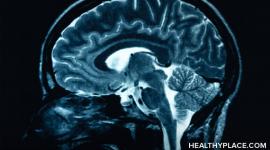How to Diagnose ADHD: The ADHD Assessment

Parents who suspect their child may have ADHD (take the ADD Quiz), commonly referred to as ADD, need to make an appointment with an experienced health care professional who knows how to diagnose ADHD. This chronic disorder affects millions of children, teens, and adults; left untreated, it keeps people from reaching their full life potential.
An Accurate Diagnosis for ADHD is Critical
Choose the health care professional who will perform the ADHD assessment on your child carefully. An inexperienced physician or mental health professional can mistake symptoms of other disorders for the signs and symptoms of ADHD. Several other conditions have symptoms similar to some of those associated with ADD.
At least 10 fairly common medical conditions have similar symptoms to ADHD, including Asperger's Syndrome (now called high-functioning autism in the DSM-V), hearing deficits, hypothyroidism, iron deficiency anemia, lead poisoning, mild mental retardation, nutritional deficiencies and allergies, mild epilepsy, and sensory disorders. All of these conditions require treatments that are different than those for ADHD. It is important that your child has a correct diagnosis so he or she can get the necessary help.
The ADHD Assessment
Pediatricians, psychiatrists, and child psychologists use the American Academy of Pediatrics standard guidelines for assessing whether a child has ADHD. Mental health professionals may also use the DSM-V, published by the American Psychiatric Association, in diagnosing ADHD. Read the simplified list of criteria below to determine if your child needs an evaluation by a professional:
Inattention (Six or more symptoms present for 6 months or more)
- Consistently disorganized
- Problems organizing activities
- Cannot focus or pay attention to tasks or instruction
- Forgetful
- Frequently loses personal items (arrives at class unprepared, loses toys and tools)
- Begins tasks or assignments, but frequently does not follow through and leaves them uncompleted
- Appears not to listen, even when directly addressed
- Makes careless mistakes in school work, professional work, and other activities
- Avoids taking on tasks that require sustained mental effort for long periods
Hyperactivity-impulsivity (Six or more symptoms present for 6 months or more)
- Talks excessively at home, in class, at work, and other places
- Has difficulty remaining seated in situations where sitting still is expected
- Children may move about a room, climb, or run where inappropriate to do so - teens and adults feel restless
- Cannot sit still when seated and frequently squirms, fidgets, or moves around
- Difficulty playing quietly (children) or quietly engaging in leisure activities (teens and adults)
- Seems constantly moving and driven, as if by a motor
- Impatient and has trouble waiting for his or her turn
- Interrupts others' conversations or games
- Blurts out answers to questions before the speaker has completed the question
If your child exhibits six or more of the symptoms on either or both of these lists, you should consider having a professional evaluate your child for ADHD.
The physician or mental health professional (see Where to Get ADD Help) will also collect information on your child's behavior and symptoms from you and other family members, schools, and other caregivers. He or she will also compare your child's behavior to that of other same-aged children. Once completed, the doctor will determine whether or not to give an ADD diagnosis to your child or if the issues stem from something else.
APA Reference
Gluck, S.
(2021, December 20). How to Diagnose ADHD: The ADHD Assessment, HealthyPlace. Retrieved
on 2025, November 27 from https://www.healthyplace.com/adhd/adhd-children/how-to-diagnose-adhd-the-adhd-assessment



